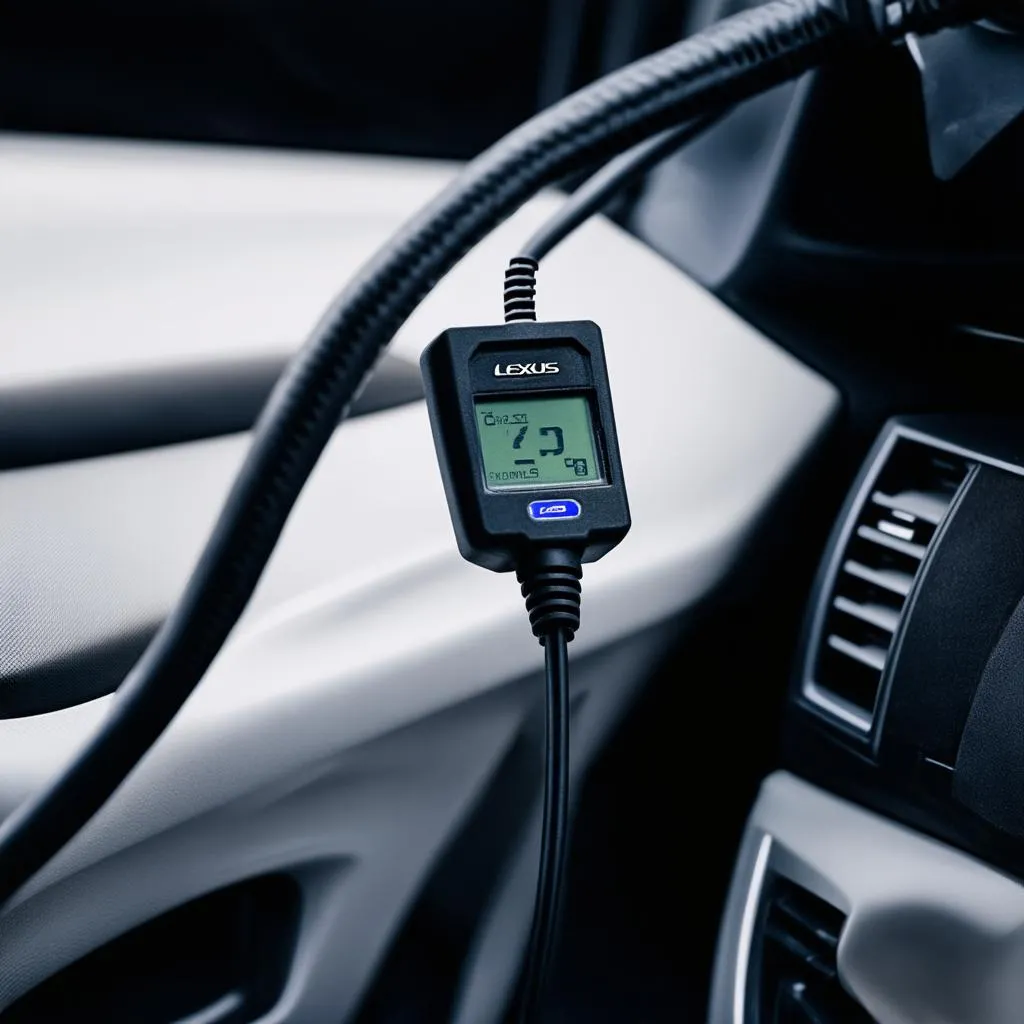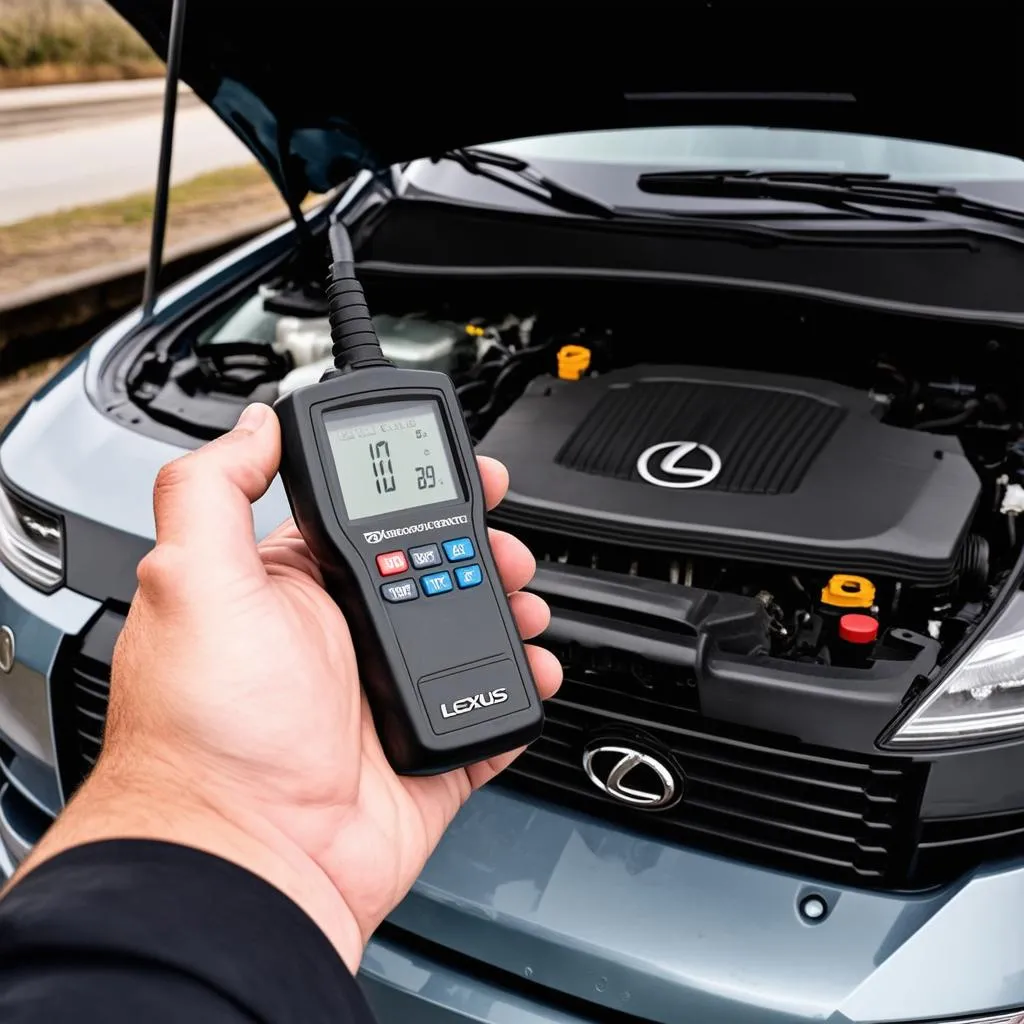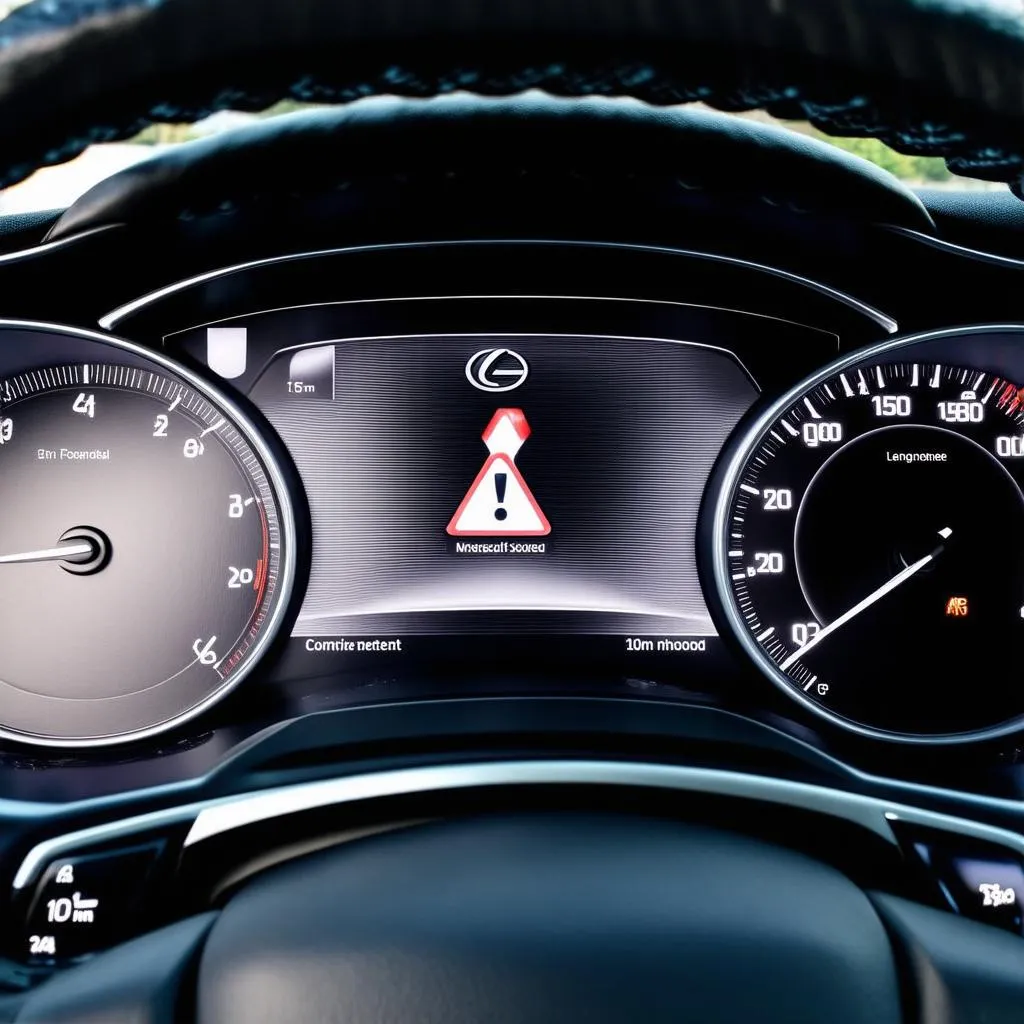Have you ever felt that sinking feeling when your Lexus’s OBD port doesn’t respond to your diagnostic tool? It’s a frustrating situation that can leave you scratching your head, wondering what’s wrong with your car. In this guide, we’ll delve into the world of Lexus OBD systems, explore common reasons why your OBD might not be reading, and provide practical troubleshooting steps to get your car back on the road.
The Importance of a Working OBD Port
The OBD (On-Board Diagnostics) port is like the car’s “black box,” providing crucial information about its health and performance. It allows mechanics and even DIY enthusiasts to diagnose issues and perform repairs. For Lexus owners, the OBD port is vital for accessing codes, data streams, and other diagnostic information, which can be invaluable in addressing issues ranging from engine misfires to air conditioning problems.
Why Your Lexus OBD Isn’t Reading: Common Culprits
1. Loose or Damaged Connections: Just like any electronic system, loose connections can disrupt the flow of information. Check the OBD port itself for bent pins, corrosion, or debris. If you find any damage, it’s best to have it repaired by a qualified technician.
2. Defective OBD Scanner: Your diagnostic tool might be the issue. While this might sound obvious, it’s important to ensure your scanner is compatible with your Lexus model and is in working order. Try using a different scanner to see if it works.
3. Power Issues: Your Lexus’s electrical system might be the culprit. A weak battery, faulty alternator, or a blown fuse can disrupt the power supply to the OBD port.
4. Faulty Control Module: Sometimes, the problem lies within the vehicle’s control module itself. This module can get corrupted or malfunction, preventing the OBD from communicating effectively.
5. Software Compatibility Issues: Not all scanners are created equal. Some scanners might not support specific models or year ranges of Lexus vehicles. Double-check that your scanner is compatible with your Lexus year and model.
6. OBD Port Malfunction: The OBD port itself can fail, which is relatively uncommon but still possible.
Troubleshooting Tips: Getting Your OBD Port Back Online
-
Check the OBD Port: Inspect the OBD port for any visible damage or corrosion. Clean it with a contact cleaner and ensure all the pins are securely in place.
-
Try a Different Scanner: If you have access to a different diagnostic tool, try using it to see if it can communicate with your Lexus. This will help determine if the issue lies with your scanner or the vehicle.
-
Check the Fuse: Refer to your Lexus owner’s manual for the fuse location and value of the OBD port fuse. Ensure the fuse is intact and not blown.
-
Battery Check: Check your Lexus’s battery voltage to ensure it’s within the acceptable range. A weak battery can cause intermittent communication issues.
-
Reconnect the Battery: Sometimes, a simple disconnect and reconnect of the battery can resolve software glitches and restore communication with the OBD port.
-
Seek Professional Help: If you’ve tried all of the above troubleshooting steps and the OBD port still isn’t working, it’s time to consult with a qualified mechanic. They have the tools and expertise to diagnose and repair more complex issues.
Common User Queries
- “My Lexus OBD is reading codes but not showing live data.” This could indicate a communication issue with a specific module or a problem with the data stream itself. A professional diagnosis might be required.
- “My Lexus OBD is reading codes for a specific module but not others.” This suggests an issue with that particular module, potentially a faulty sensor or a wiring problem.
- “My Lexus OBD port has no power.” This is likely a power supply issue. Check the fuses, battery, and wiring to identify the root cause.
Professional Insights: Advice from Experts
“Remember, the OBD port is just a window into the vehicle’s computer system,” states automotive electronics expert, Dr. Alex Carter, author of “Decoding the Automotive Network.” “It’s important to diagnose the underlying problem rather than just focusing on the OBD port itself.”
Frequently Asked Questions
- What is the best OBD scanner for Lexus vehicles? There are many scanners available, but it’s crucial to choose one that’s compatible with your Lexus model and offers the features you need. Look for a scanner with live data capabilities, code readings, and compatibility with your vehicle’s protocol.
- How often should I scan my Lexus’s OBD port? While it’s not necessary to scan your Lexus’s OBD port regularly, doing so can help identify potential issues before they escalate. A yearly scan is a good starting point, especially if you notice any unusual driving behavior or warning lights.
Related Articles
- Lexus IS250 OBD Power Not Reading Engine Codes
- 1995 LS400 OBD Code P1600
- 1999 Lexus LS400 OBD Port
- Lexus RX300 OBD Codes P0330 P0171
- 1999 Lexus LS400 OBD 17 Connector
Call to Action
Don’t let a malfunctioning OBD port keep you from enjoying your Lexus. If you need assistance with diagnostics or require support for your Lexus, our team of expert mechanics is available 24/7. Contact us via WhatsApp at +84767531508.
 Lexus OBD Port Connection
Lexus OBD Port Connection
 Lexus OBD Scanner
Lexus OBD Scanner
 Lexus Dashboard Warning Light
Lexus Dashboard Warning Light
We’re here to help you keep your Lexus running smoothly. Leave a comment below if you have any questions, or explore our website for more information on Lexus repair and maintenance.
